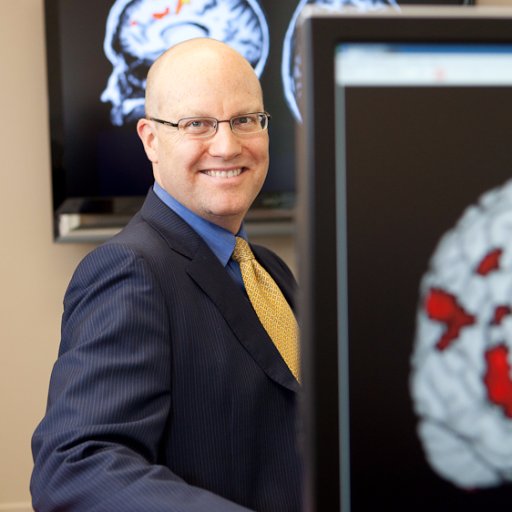
Dr. Sean Mackey
@DrSeanMackey
Followers
8K
Following
892
Media
280
Statuses
3K
Redlich Professor at Stanford University • Chief of @StanfordPain • Physician-scientist focused on patient-centered pain, neuroscience, and outcomes research
Stanford, CA
Joined November 2014
Who’s more sensitive to pain, men or women? The answer may surprise you.
washingtonpost.com
As we learn more about how pain processing can vary between women and men, it might lead to better treatments.
1
1
8
Our latest paper @NatureComms reviews the relationships between sleep and pain. Research shows that poor sleep worsens pain; pain worsens sleep. Clear area for better understanding these relationships and improving care. (free download) https://t.co/lh6fVhUVX1
8
42
157
Just went live on The Drive with @PeterAttiaMD — we dive deep into the science and future of pain: what we know, what we get wrong, and what’s next. 🎧 Listen here: https://t.co/cOk3kAQeSt
#PainMedicine #PrecisionHealth #Neuroscience
peterattiamd.com
“I frequently focus on getting people back to a good quality of life and giving them control of their life and their pain, rather than a promise to eliminate pain. In the acute setting, often, it's...
12
5
35
This quote came from an interview, likely on the Huberman Lab Podcast ( https://t.co/3eecMZMqOL), where I was discussing the science of pain. Taken out of context, I understand it sounded dismissive or upsetting. We’ll do better to provide full context in the future. Pain isn’t
hubermanlab.com
In this episode, my guest is Dr. Sean Mackey, M.D., Ph.D., Chief of the Division of Pain Medicine and Professor of Anesthesiology, Perioperative and Pain Medicine and Neurology at Stanford University...
“What goes on in your shoulder is not pain – that’s nociception. Those are electrical signals, electrochemical impulses being transmitted and that is to be distinguished from the subjective experience of pain that you have.” – @DrSeanMackey
22
5
28
Did you know you can look up any physician to see if they've received payments from drug or medical device companies? The site is "Open Payments" ( https://t.co/ArMNYjd1wy). It collects and publishes data on financial relationships between these companies and healthcare
0
5
17
🧠 Chronic pain isn't just physical—it can erode quality of life in profound ways. Melanie Thernstrom writes a deeply personal essay in @WSJ highlighting the intersection of pain, despair, and resilience, shedding light on a silent epidemic affecting millions. #ChronicPain
16
51
209
Advancing Patient Engagement in Pain Research In clinical research, patients are usually study participants, not collaborators. But a recent paper highlights the benefits of involving patients as full partners in pain research. Here’s what it means and why it matters. (1/10)
4
21
66
Breaking Barriers: Addressing Opioid Stigma in Pain & Opioid Use Disorder (OUD). See our just published Perspective in @PAINthejournal
https://t.co/Wsc7sfYdmj (free download). Led by Karly Edwards. Why it matters: Opioid stigma fuels inequities in chronic pain and opioid use
journals.lww.com
An abstract is unavailable.
15
8
20
Innovative research maps lumbar muscle health in 3D led by @DrKenWeber
https://t.co/Ko0DMykJ8w 🧠 Why it matters: Intramuscular fat (IMF) in lumbar paraspinal muscles plays a critical role in low back pain (LBP). This study unveils the first 3D spatial distribution of IMF,
2
6
20
New @EurSpineJournal study introducing novel method for 3D analysis of lumbar paraspinal intramuscular fat. Method may deliver key insights into the interplay between #muscle #health and #lowbackpain. https://t.co/XPRZIsoaUG
@StanfordPain @PolyNeuro
0
12
27
We conduct many online studies on pain. Unfortunately, unscrupulous people are gaming the system for the money we reimburse for these studies. We screen out these bots and people. However, it is imperfect and time consuming. I apologize to anyone we mistakenly screen out who is
2
0
20
🎙️💡 Dive into the world of pain with @DrSeanMackey🧠 Explore invisible diseases, validation of pain, and groundbreaking treatments. Why does pain feel different for everyone? Find out from a leading expert! https://t.co/WfQc7yUAIz
#ChronicPain #InvisibleIllness #Healthcare
goodlifeproject.com
A Stanford pain expert reveals mindblowing neuroscience insights on why pain is so personal - and how to outsmart it.
0
3
14
Thrilled to be on @goodlifeproject podcast to discuss all things related to pain. https://t.co/UtM2KZaXge Fascinating discussion on broad range of pain related topics with tips for better controlling pain. #ChronicPain
goodlifeproject.com
A Stanford pain expert reveals mindblowing neuroscience insights on why pain is so personal - and how to outsmart it.
0
2
17
Now published online!🎉 New @TrendsNeuro article reviewing the latest cutting-edge science and what we still need to know about how opioids 💊impact the human brain.🧠 ⭐️Open Access⭐️until July 6th via this Share Link: https://t.co/tjXYHZLhUG
2
15
35
Join us at Stanford! We're seeking a faculty investigator in clinical pain research to join the Department of Anesthesiology, Perioperative and Pain Medicine. Come join our interdisciplinary group of pain researchers, and let's work together to reduce pain in the individual and
2
6
13
With the explosive use of patient-reported outcomes in clinical care and research, we need to better understand the clinical meaning of these measures. And do so from the patient's perspective. Our study will help establish what is "meaningful change" to a person living with
3
11
32
I was pointed to a recent article on @hubermanlab. Not appreciating it was a hit piece, I read it. Wish I could get those 15min of life back. We all know that when you achieve a level of success, people want to attack that person. Its human nature. Indeed, there is a wealth of
17
9
184
Just published our latest findings from a comprehensive UK Biobank study: We've uncovered how lumbar paraspinal muscle health is intricately linked with age, BMI, sex, and physical activity levels. https://t.co/6rHLwOtjGQ (free download - led by @EvertWesse45644 and @DrKenWeber )
1
4
18







